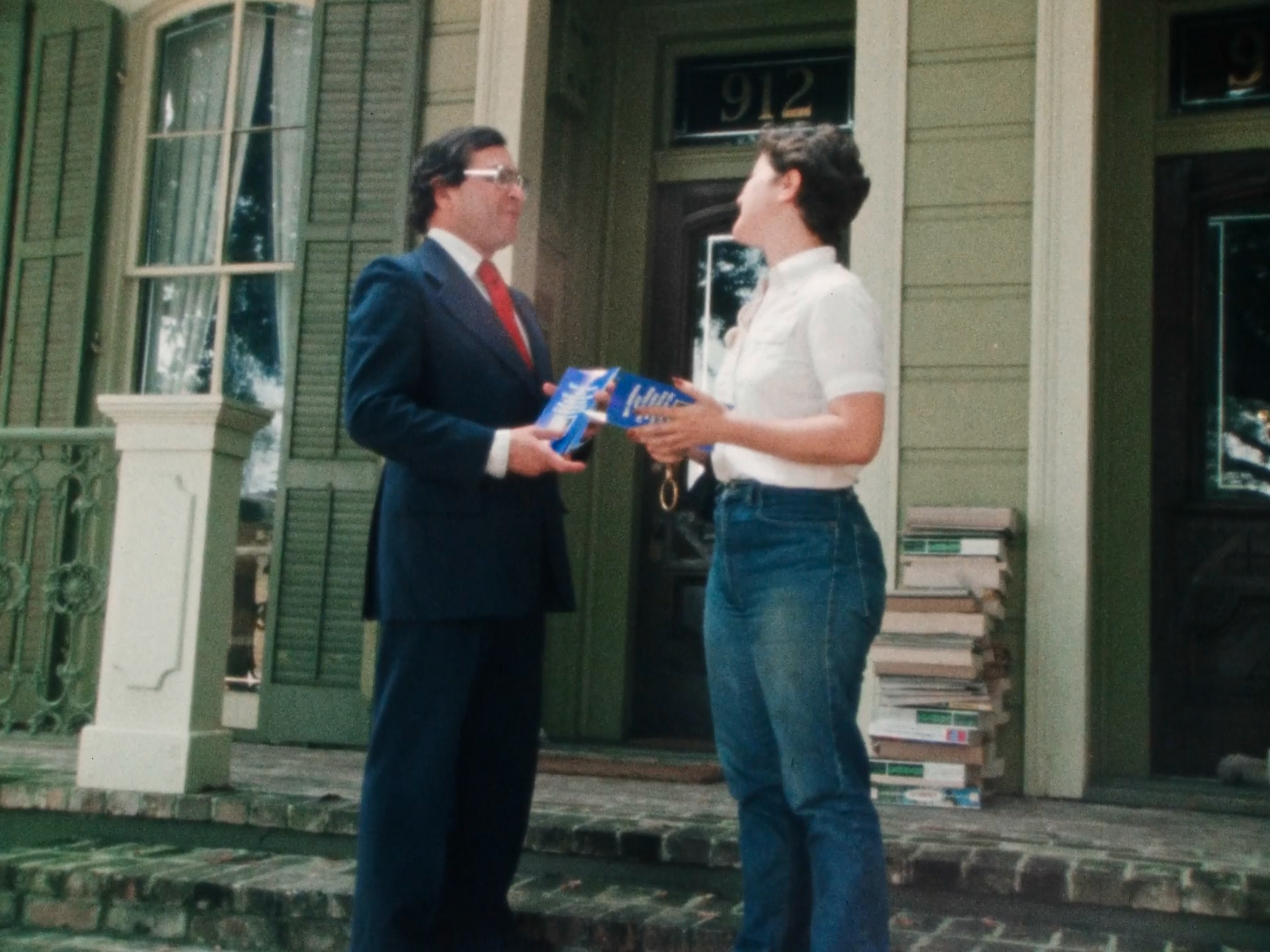As New Orleans celebrates 300 years, residents reflect on its rich history.
Campaign Films from New Orleans’ First Black Mayor Preserved


Amistad is pleased to share the news that three campaign films from the Ernest N. “Dutch” Morial collection have been preserved with a grant from the National Film Preservation Foundation. The grant supported the creation of new 16mm preservation film elements and high-resolution digital copies.
Ernest N. "Dutch" Morial (1929-1989) was an attorney and politician who was active in the civil rights movement in New Orleans beginning in the 1960s. His political career was marked by a number of firsts for an African American, including being the first since Reconstruction elected to the Louisiana State Legislature and the first to serve on the Fourth Circuit Court of Appeals. He was also the first African American mayor of the city of New Orleans, serving two terms from 1978 to 1986; he left his mark nationally by being elected president of the United States Council of Mayors in 1984. He was the father of Marc Morial, another former New Orleans mayor and current president of the National Urban League; and spouse of activist Sybil Haydel Morial.

Dutch Morial’s first mayoral term was marked by conflict with striking sanitation workers and police officers, which led to the historic cancellation of New Orleans’ Mardi Gras celebrations in 1979. As New Orleanians have again faced a Mardi Gras cancellation in 2021, a new bout of sanitation worker complaints and truncated Carnival parade routes in 2022 due to an understaffed police force, a look back on Dutch Morial’s first term seems especially timely.
The three films selected for preservation include Morial Uptown, Morial Campaign 1977 and Morial at Home, all from Dutch Morial’s 1977 mayoral campaign. He would go on to win this election against city councilman Joseph V. DiRosa to become the city’s first Black mayor. The first film depicts Morial canvassing a white Uptown New Orleans neighborhood with his children. The second includes an interview with the candidate, along with shots of City Hall, sanitation workers in the French Quarter and Morial addressing teachers in a classroom. The third film depicts Morial in City Park, a formerly segregated location, with his daughter, strolling and eating a candy apple. There are shots of the candidate pushing his daughter on a swing, and reading with his family in their home.
The films project a candidate who is approachable to all demographics of the city of New Orleans. They are clearly designed to present a candidate who would be appealing to the white voters of the city, while also reaching out to the shared experiences of Black voters. They are emblematic of the fine line walked by any African American breaking ground in politics or elsewhere. They are also an important record of a historic and successful political campaign. Amistad is pleased to be able to preserve these films for public record, and to make them available to the residents of New Orleans and beyond.

Images from Amistad’s website, newsletters and blogs cannot be reproduced without permission.
Explore More Articles
Hambrick is a Public Historian with a passion for collecting, preserving and interpreting history for diverse audiences. Her thirty-one-year career as a museum professional includes expertise in program development, interpretative planning, curation, grant writing, fundraising, and board governance. She led the effort to preserve three slave cemeteries and six historic buildings in Ascension Parish.
She is considered an expert on the history and culture of African Americans in communities along the Mississippi River. Kathe Hambrick’s interviews include local, national, and international media, the BBC Learning Channel, CBS Morning News, National Public Radio, and the New York Times. The consulting firm, 2PRESERVE was established by Hambrick in 2021 to provide cultural resources and guidance to corporations, museums, cultural centers, government agencies, and faith-based organizations.
Throughout her 31-year career, Kathe has curated over one hundred exhibits, including The Rural Roots of Jazz, African Influences on Louisiana Cuisine, Creole Du Monde, and The Square Collection which featured original art by Elizabeth Catlett, Jacob Lawrence, Richmond Barthé, and Tina Allen. Her most recent exhibit is the GU272 of Ascension: The Jesuit and Episcopal Connection to Slavery.
Kathe is the author and co-author of several books:
Hambrick is a Public Historian with a passion for collecting, preserving and interpreting history for diverse audiences. Her thirty-one-year career as a museum professional includes expertise in program development, interpretative planning, curation, grant writing, fundraising, and board governance. She led the effort to preserve three slave cemeteries and six historic buildings in Ascension Parish.
She is considered an expert on the history and culture of African Americans in communities along the Mississippi River. Kathe Hambrick’s interviews include local, national, and international media, the BBC Learning Channel, CBS Morning News, National Public Radio, and the New York Times. The consulting firm, 2PRESERVE was established by Hambrick in 2021 to provide cultural resources and guidance to corporations, museums, cultural centers, government agencies, and faith-based organizations.
Throughout her 31-year career, Kathe has curated over one hundred exhibits, including The Rural Roots of Jazz, African Influences on Louisiana Cuisine, Creole Du Monde, and The Square Collection which featured original art by Elizabeth Catlett, Jacob Lawrence, Richmond Barthé, and Tina Allen. Her most recent exhibit is the GU272 of Ascension: The Jesuit and Episcopal Connection to Slavery.
Kathe is the author and co-author of several books:
Hambrick is a Public Historian with a passion for collecting, preserving and interpreting history for diverse audiences. Her thirty-one-year career as a museum professional includes expertise in program development, interpretative planning, curation, grant writing, fundraising, and board governance. She led the effort to preserve three slave cemeteries and six historic buildings in Ascension Parish.
She is considered an expert on the history and culture of African Americans in communities along the Mississippi River. Kathe Hambrick’s interviews include local, national, and international media, the BBC Learning Channel, CBS Morning News, National Public Radio, and the New York Times. The consulting firm, 2PRESERVE was established by Hambrick in 2021 to provide cultural resources and guidance to corporations, museums, cultural centers, government agencies, and faith-based organizations.
Throughout her 31-year career, Kathe has curated over one hundred exhibits, including The Rural Roots of Jazz, African Influences on Louisiana Cuisine, Creole Du Monde, and The Square Collection which featured original art by Elizabeth Catlett, Jacob Lawrence, Richmond Barthé, and Tina Allen. Her most recent exhibit is the GU272 of Ascension: The Jesuit and Episcopal Connection to Slavery.
Kathe is the author and co-author of several books:




